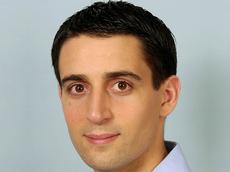The Politics Working Group gives scientific staff a voice

ETH Zurich is committed to paying keen attention to opinion forming processes as it helps achieve consensus and promotes an institutional identity. One key group growing in number and importance is the institution’s scientific staff. In order to give voice to their concerns a new working group was founded in the summer of 2011.
The Politics Working Group (PoWoG) is a sub-entity of the Academic Association of Scientific Staff at ETH Zurich (AVETH = Akademische Vereinigung des Mittelbaus der ETH Zurich). Its aim is to empower its members to initiate political discussions independently of any structural or organizational needs. Supported and headed by AVETH, the PoWoG encourages scientific staff to freely join the meeting. Because it is an informal group and not an association, anyone can use this platform at any time to voice their opinions. Since 2013, discussion forums are held every six weeks, which is in line with the schedule of the ETH University Assembly ("Hochschulversammlung"). The advantage of this is that group representatives receive support from the assembly and benefit from its broader point of view.
In addition, AVETH has built up a broad and efficient network within ETH Zurich. This is mainly due to the fact that of the 16 departments at ETH Zurich, 15 departments are currently associated with AVETH. Having such a solid network has been instrumental in creating an open communication path, which AVETH, the PoWoG and the presidents of each department association are regularly using to probe each other on different topics.
Thanks to the diversity of the participants, the PoWoG meetings have evolved into richly intense and interactive political discussions. Of course, the term "politics" has taken on a rather broad and imprecise meaning. Various topics are addressed, particularly those that affect the lives, future careers and working conditions of the scientific staff. This year we have already touched on a variety of issues: revision of doctoral regulations, integration of non-German speakers, revaluation of the planning and grading of main exams and maternity leave for the scientific staff to name a few.
The outcome of some of the group’s discussions has been very impactful. For example, the inputs brought to the rector on the topic of revising the doctoral regulations are being taken into consideration. If implemented there will be a better match between the doctoral students’ needs and the doctoral requirements at ETH. Revisions will be finalized this July and will go to parliament in October with the aim to implement 1 November, 2013.
The discourse on the current matters will certainly continue during the course of the year. Our members will also bring up new projects or ideas, which will stimulate interesting and challenging discussions over the next months.
About the author
Florian Emaury obtained his Master of Science in physics in 2010 from the Institut d'Optique Paris Tech (IOGS) near Paris. After one year of working abroad in California, USA, he joined the Ultrafast Laser Physics Group headed by Professor Ursula Keller at the Institute for Quantum Electronics at ETH, where he is currently working on laser developments. Within AVETH, Florian has been acting as the Chairman of the Politics Working Group (PoWoG) since February 2012.







READER COMMENTS